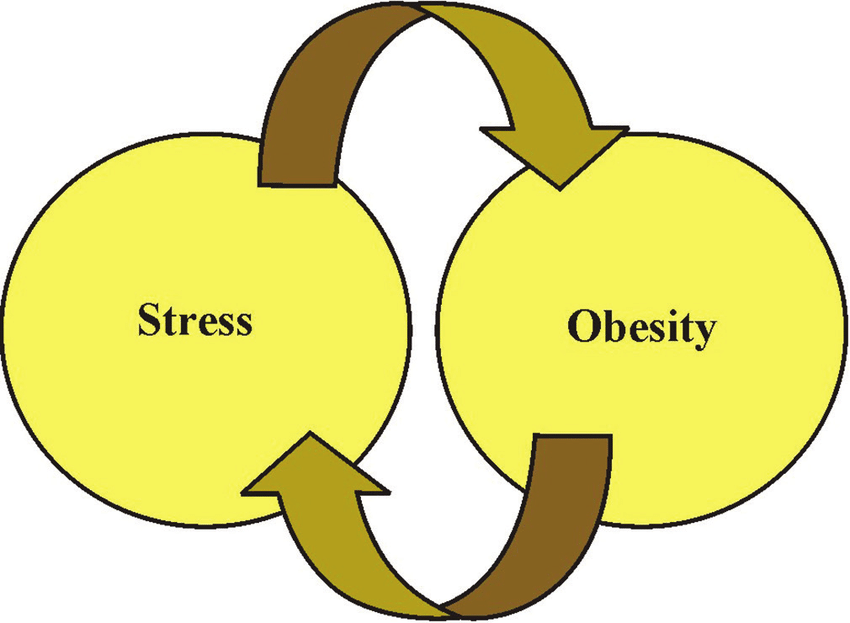The Link Between Stress and BMI
Life is not possible without stress, and the influence it has on our body, especially regarding Body Mass Index or BMI, may be amazing. Chronic stress, according to scientists, can lead to unpredictable weight fluctuations, hence affecting your BMI and overall health. A balanced view of how stress works in our organisms will help us start to act and take care of our health.
How Stress Influences Weight Management
Understanding the connection between stress and BMI requires a closer look at how stress affects our bodies and behaviors:
- Hormonal Changes: A lot of hormonal changes take place when one is stressed. The most prevalent is the release of cortisol, a hormone that increases appetite and leads to yearnings for foods containing a lot of fat and, hence, gaining more weight. Excessive levels of cortisol have also been linked to the accumulation of fat, particularly in the abdominal region.
- Emotional Eating: Most people during times of stress use food as a means of comfort, whereas, in fact, it is high-calorie, low-nutrient food that causes weight gain. Often, this is a coping mechanism; hence, a vicious circle of stress and unhealthy eating habits ensues.
- Metabolism Effects: Chronic stress can also disturb metabolic processes and make the body function inadequately to burn all the calories. It may further cause insulin resistance and hence worsen one's effort to maintain weight.
- Sleep Disruption: tress can interfere with sleep, leading to fatigue and reduced motivation toward physical activities, hence influencing weight management. Poor sleep also visibly relates to hormonal changes that could result in increased hunger and cravings.
- Reduced Physical Activity: Stress can render a person extremely exhausted and demotivated; hence, people become less active. Over a period of time, this lagging behind in physical activities contributes to gain in weight.
Understanding the Psychological Aspect of Stress
First, it is important to denote that the psyche is affected by stress in regards to much more than temporary emotional reactions. Long-term stress can lead to psychological disorders such as anxiety and depression, which in turn can exacerbate behaviors that are damaging to good health. Knowing this psychological perspective is crucial in evaluating how stress affects BMI.
Strategies to Manage Stress for a Healthy BMI
Managing stress is crucial for maintaining a healthy BMI. Here are some effective strategies:
- Regular Exercise: Exercise is known to release endorphins, which may help an individual to not feel as stressed and even happier. Do at least 150 minutes of moderate exercise each week. Even a daily walk can do volumes for your mental health.
- Mindfulness and Meditation: Anxiety decreases with a quiet, much-subdued mind through mindfulness and meditation practices. Examples include yoga and meditation. Stress falls because mindfulness techniques allow the person to live in the present without anxiety.
- Balanced Nutrition: Mood and energy level stabilization is what one gets from consuming a diet that is healthy and in balance. The focus should be whole foods, such as fruits, vegetables, whole grains, and lean proteins. Avoid foods that are heavily processed, with high contents of sugar, as these develop mood swings.
- Social Support: Relate to your friends and family so that at times of pressure, you are always in a position to extend emotional support to them. Share your feelings and all experiences with them; they can also be of great insight and advice.
- Sleep Hygiene: Prioritize good sleep habits. Aim for 7-9 hours of quality sleep per night. Establish a relaxing bedtime routine and create a sleep-friendly environment to improve sleep quality.
- Seek Professional Help: Sometimes stress may be overwhelming, requiring one to seek consultation with experts in mental health who may give advice on coping with it. After all, therapy will assist you with efficient ways of dealing with the stress and thus boost your mental health.
Conclusion
The relationship between stress and BMI is an important one that will help people with weight management. Making healthy choices to lower your stress offers many positive points for your mental and physical health. It is not about the number on the scale but about being kinder to yourself and taking better care of your body.

